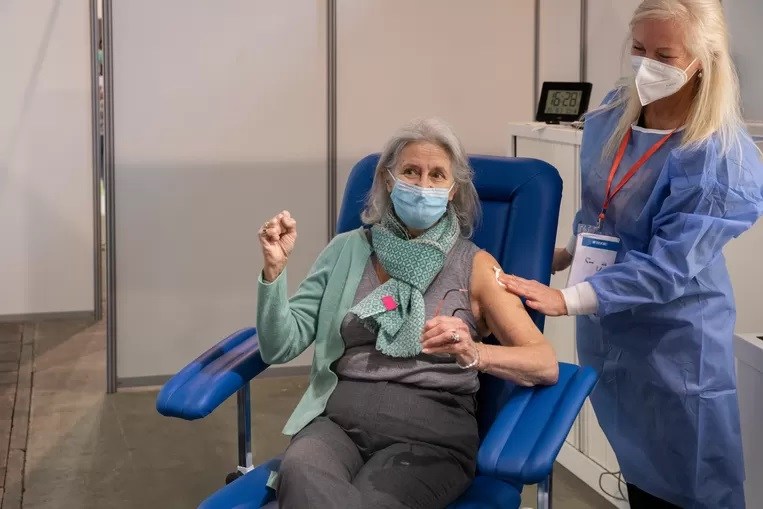Scientists in Germany, Italy and the UK have discovered the mechanism that causes some people to develop blood clots after being injected with the AstraZeneca vaccine against Covid-19, De Volkskrant reports.
In recent weeks, a number of countries in Europe have suspended use of the AZ vaccine because of reports, beginning in Denmark, that vaccinated patients developed blood clots or embolisms, which can lead to paralysis, stroke or even death.
The European Medicines Agency (EMA) as well as the World Health Organisation both pointed to the extremely small proportion of cases of embolism compared to the numbers being vaccinated, and recommended continuing the vaccination campaign.
Once the EMA had issued its final word on the issue, most of the countries involved went back to using the AZ vaccine.
Now a group of haematologists in three countries have suggested the reason for the phenomenon: the patient’s own immune system.
Blood clots form naturally in the body when platelets, one of the three main types of cell in the blood, gather together to block a site of bleeding, such as from an external or internal injury. The blood clots are what stop the slightest nick from a razor from causing our blood to drain out onto the bathroom floor.
But in the wrong place, clots can be a serious problem. In the case of deep vein thrombosis, for example, a blood clot formed in the veins of the legs during a long period of immobility, such as on a plane journey, can migrate to other parts of the body – the heart, the lungs or the brain – with disastrous results.
Covid-19 is known already to cause an effect known as cytokine shock – when the body produces such a huge reaction to the virus that it begins to attack its own systems.
In the case of blood, the reaction is similar to heparin-induced thrombocytopenia (HIT), and is caused by antibodies activating the platelets that form blood clots. That condition is usually a result of infection, but the scientists argue it could just as easily result from vaccination, which is a sort of deliberate infection.
“It now seems clear to me that there is a connection with the vaccine,” Professor Hugo ten Cate, thrombosis expert at Maastricht university hospital, told the paper. In the case of this phenomenon, not only do the antibodies bind to platelets to form a clot, they also prevent the creation of other platelets, so that the patient is suffering from too many at one site, and too few elsewhere.
As far as treatment is concerned, the usual medication for embolism, the blood-thinner heparin, should not be used because of the paradoxical effect of the antibodies. In its place, the scientists are recommending a drip containing immunoglobulin, which has the effect of bringing the immune system back under control.
Alan Hope
The Brussels Times

